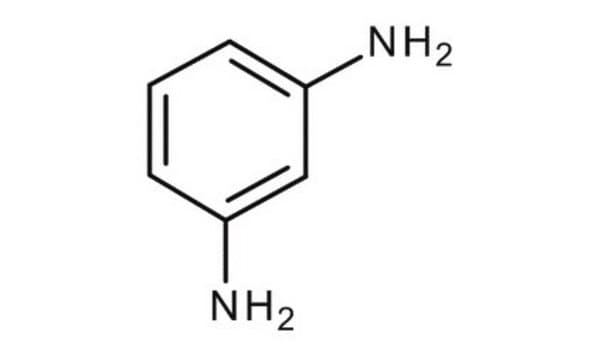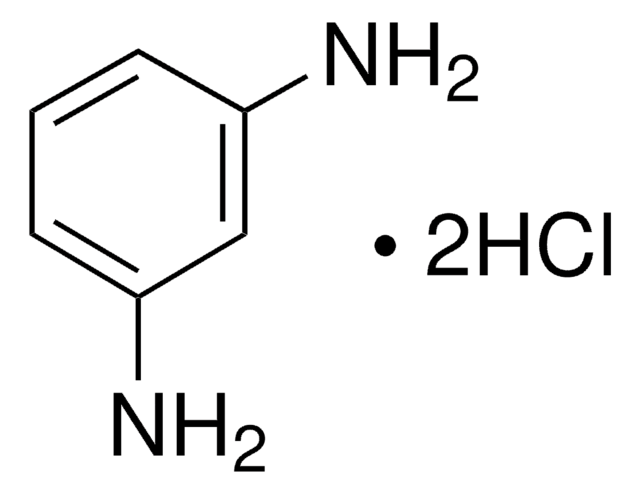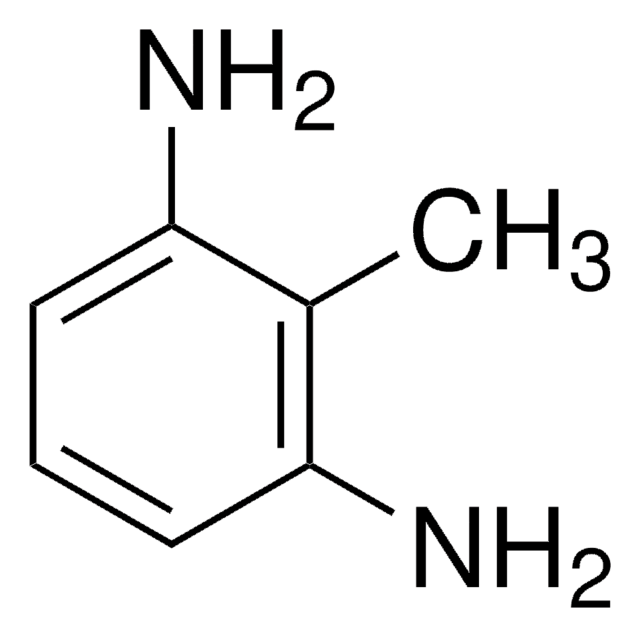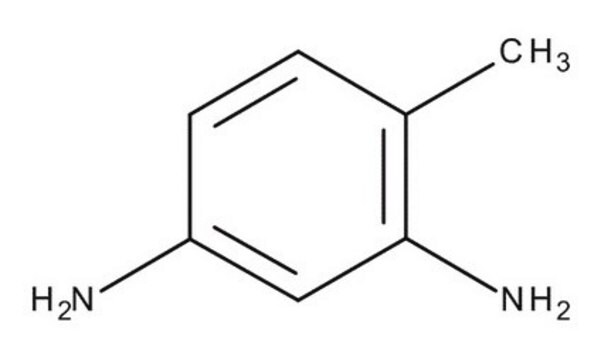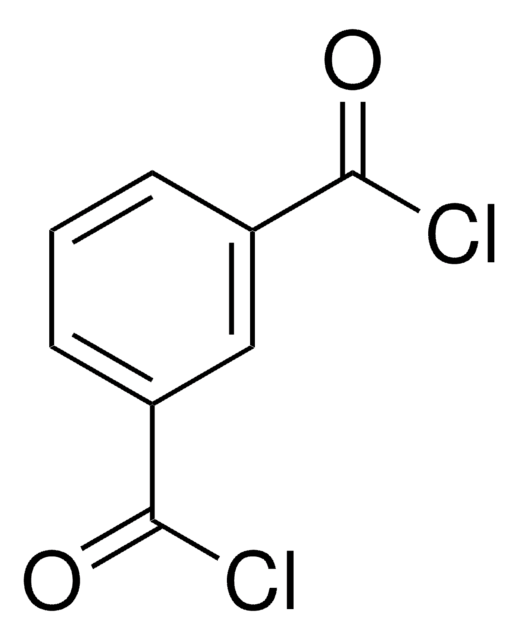P23954
m-Phenylenediamine
flakes, 99%
Sinónimos:
1,3-Benzenediamine, 1,3-Diaminobenzene, 1,3-Phenylenediamine, MPDA
About This Item
Productos recomendados
vapor density
3.7 (vs air)
Quality Level
vapor pressure
0.62 mmHg ( 100 °C)
assay
99%
form
flakes
autoignition temp.
1040 °F
bp
282-284 °C
mp
64-66 °C
SMILES string
Nc1cccc(N)c1
InChI
1S/C6H8N2/c7-5-2-1-3-6(8)4-5/h1-4H,7-8H2
InChI key
WZCQRUWWHSTZEM-UHFFFAOYSA-N
¿Está buscando productos similares? Visita Guía de comparación de productos
General description
Application
- intrinsically electrically semiconducting microparticles of semiladder poly(m-phenylenediamine-co-2-hydroxy-5-sulfonic aniline) structures
- extraction medium based on chitosan-poly(m-phenylenediamine) (CS-PPD) Fe3O4 nanocomposite, used as sorbent for the magnetic solid-phase extraction (MSPE) of polychlorinated biphenyls
- series of terpolymers, via chemical oxidative polymerization
- thin film composite (TFC) membranes based polyamide
- TFC reverse osmosis (RO) membranes
Other Notes
signalword
Danger
Hazard Classifications
Acute Tox. 3 Dermal - Acute Tox. 3 Inhalation - Acute Tox. 3 Oral - Aquatic Acute 1 - Aquatic Chronic 1 - Eye Irrit. 2 - Muta. 2 - Skin Sens. 1
Storage Class
6.1C - Combustible acute toxic Cat.3 / toxic compounds or compounds which causing chronic effects
wgk_germany
WGK 3
flash_point_f
Not applicable
flash_point_c
Not applicable
ppe
dust mask type N95 (US), Eyeshields, Faceshields, Gloves, type P2 (EN 143) respirator cartridges
Certificados de análisis (COA)
Busque Certificados de análisis (COA) introduciendo el número de lote del producto. Los números de lote se encuentran en la etiqueta del producto después de las palabras «Lot» o «Batch»
¿Ya tiene este producto?
Encuentre la documentación para los productos que ha comprado recientemente en la Biblioteca de documentos.
Los clientes también vieron
Nuestro equipo de científicos tiene experiencia en todas las áreas de investigación: Ciencias de la vida, Ciencia de los materiales, Síntesis química, Cromatografía, Analítica y muchas otras.
Póngase en contacto con el Servicio técnico



